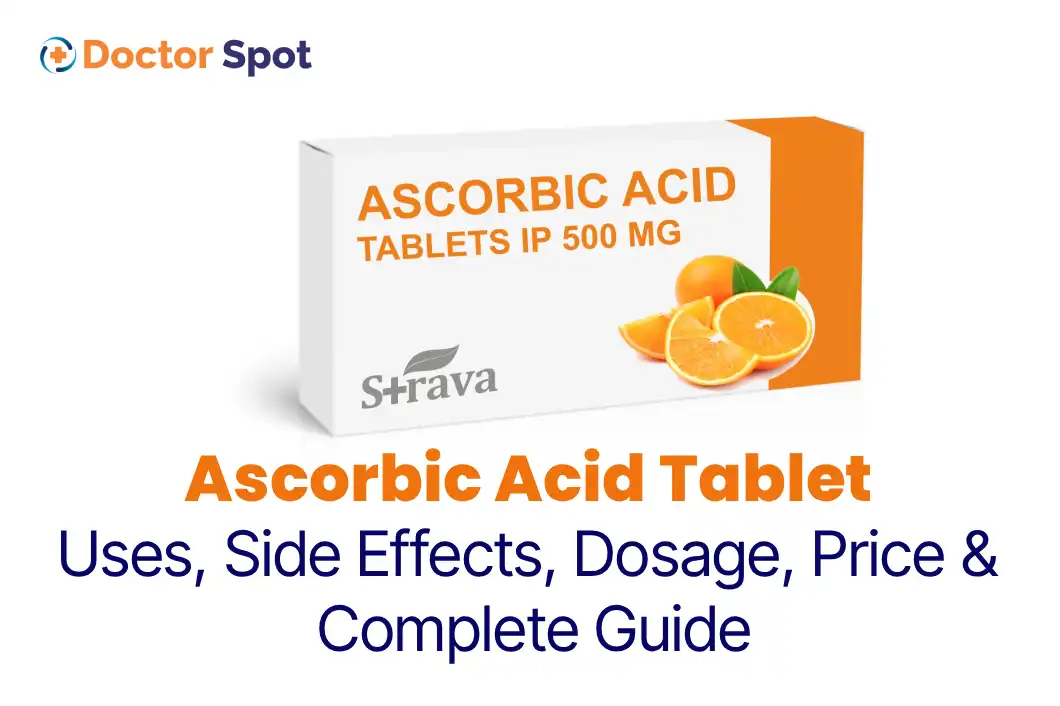Ascorbic Acid Tablet: Uses, Side Effects, Dosage, Precautions and More

Ascorbic acid, commonly known as vitamin C, is a vital nutrient for maintaining health and wellness. Available in various forms, including tablets, ascorbic acid is widely used for its numerous benefits. This article delves into the uses, side effects, dosage, precautions, and more regarding ascorbic acid tablets.
Introduction to Ascorbic Acid
Ascorbic acid is an essential vitamin that the body cannot produce on its own. It is crucial for the growth, development, and repair of all body tissues. It is involved in many body functions, including collagen formation, iron absorption, the immune system, wound healing, and the maintenance of cartilage, bones, and teeth.
Uses of Ascorbic Acid Tablets
- Boosting the Immune System: Ascorbic acid is renowned for its immune-boosting properties. It enhances the production of white blood cells, which are crucial for fighting infections.
- Antioxidant Properties: As an antioxidant, vitamin C helps protect cells from damage by free radicals, which are harmful molecules that can lead to chronic diseases.
- Collagen Production: Vitamin C is essential for the biosynthesis of collagen, a protein that helps maintain the skin, blood vessels, bones, and cartilage.
- Iron Absorption: Ascorbic acid improves the absorption of non-heme iron, the type of iron found in plant-based foods, making it beneficial for individuals with iron-deficiency anemia.
- Wound Healing: Due to its role in collagen production, vitamin C is crucial for wound healing and the maintenance of healthy skin.
- Cardiovascular Health: Vitamin C helps reduce the risk of chronic diseases by lowering blood pressure and enhancing endothelial function.
- Preventing Scurvy: A deficiency in vitamin C can lead to scurvy, a condition characterized by fatigue, inflammation of the gums, joint pain, and poor wound healing. Ascorbic acid tablets can prevent and treat this condition.
Dosage of Ascorbic Acid Tablets
The recommended dietary allowance (RDA) for vitamin C varies by age, sex, and life stage:
- Infants: 40-50 mg/day
- Children (1-8 years): 15-25 mg/day
- Children (9-13 years): 45 mg/day
- Adolescents (14-18 years): 65-75 mg/day
- Adults (19 years and older): 75-90 mg/day
- Pregnant Women: 85 mg/day
- Breastfeeding Women: 120 mg/day
For therapeutic purposes, such as treating a vitamin C deficiency or enhancing immune function, higher doses may be prescribed by a healthcare provider. It’s important to follow the recommended dosage on the product label or as advised by a healthcare professional to avoid adverse effects.
Side Effects of Ascorbic Acid Tablets
While ascorbic acid is generally safe, especially when taken at recommended doses, it can cause side effects in some individuals, particularly at high doses:
- Gastrointestinal Issues: High doses of vitamin C (more than 2,000 mg/day) can cause diarrhea, nausea, and abdominal cramps.
- Kidney Stones: Excessive vitamin C can lead to the formation of kidney stones in susceptible individuals due to the increased excretion of oxalate, a byproduct of vitamin C metabolism.
- Iron Overload: In individuals with conditions like hemochromatosis, excessive vitamin C can exacerbate iron overload by increasing iron absorption.
Precautions When Taking Ascorbic Acid Tablets
- Medical Conditions: Individuals with certain medical conditions, such as kidney disease, should consult a healthcare provider before taking high doses of vitamin C.
- Pregnancy and Breastfeeding: While vitamin C is generally safe during pregnancy and breastfeeding, it’s important to adhere to recommended doses to avoid potential complications.
- Drug Interactions: Vitamin C can interact with certain medications, including chemotherapy drugs, statins, and anticoagulants. Always inform your healthcare provider of any supplements you are taking.
- Allergies: Although rare, some individuals may be allergic to ascorbic acid. Symptoms of an allergic reaction include rash, itching, swelling, severe dizziness, and trouble breathing.
Forms of Ascorbic Acid Tablets
Ascorbic acid is available in several forms, including:
- Chewable Tablets: Easy to consume and often flavored, making them suitable for children and adults who have difficulty swallowing pills.
- Effervescent Tablets: Dissolve in water to create a fizzy drink, offering an alternative for those who prefer not to swallow tablets.
- Sustained-Release Tablets: Designed to release vitamin C gradually over time, providing a steady supply of the nutrient throughout the day.
Conclusion
Ascorbic acid tablets are a convenient and effective way to ensure adequate vitamin C intake, supporting overall health and wellness. While generally safe, it’s essential to adhere to recommended dosages and consult a healthcare provider if you have any medical conditions or are taking other medications. By understanding the uses, side effects, dosage, and precautions associated with ascorbic acid, you can make informed decisions about your health and supplementation
Disclaimer:
All information and content on this site are provided for informational and educational purposes only. They are not a substitute for professional medical advice, diagnosis, or treatment. Always seek the guidance of a qualified healthcare professional for any health-related concerns or conditions.
Also read: Misoprostol Tablet: Uses, Side Effects, Dosage, Precautions and More